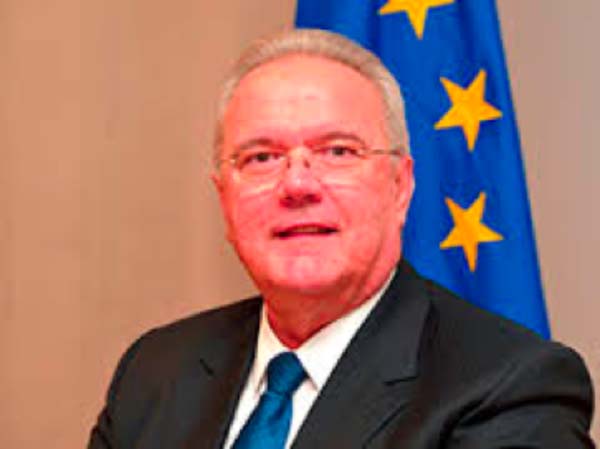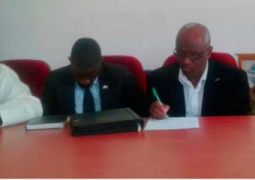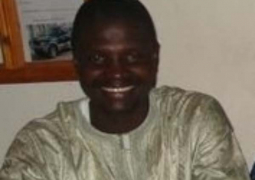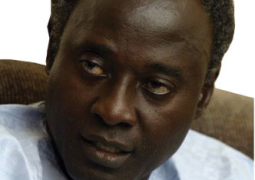
EU Commissioner for International Cooperation and Development, Neven Mimica, will this week attend the Third International Conference on Financing for Development in Addis Ababa, Ethiopia. The conference is expected to result in an agreement on the financial and non-financial means of implementation (i.e. aid, investments, policies and more) that will support the post-2015 development agenda and the Sustainable Development Goals (SDGs). This agreement will pave the way for two other milestones this year: the UN General Assembly in New York in September, which will decide on the list of Sustainable Development Goals (SDGs), and the UN Conference of the Parties on Climate Change (COP) in Paris in December.
Ahead of the conference, High Representative/Vice-President Mogherini commented: “2015 is a crucial year in our fight against poverty and for sustainable development. Ambition is needed if we are to fulfil the relevant objectives we have set ourselves: ending extreme poverty and ensuring a sustainable future for all. We need to empower people, starting from women and girls, fight inequality, promote peaceful societies and create shared prosperity through inclusive and sustainable growth. Addressing all this is a challenging task, and will only be achieved if we all take responsibilities that are coherent with our own targets, and join forces in a strong global partnership.”
Commissioner Mimica added: “Collectively, the EU is already the largest donor of official development assistance and a pioneer in the design and use of innovative financing mechanisms, expecting to mobilise €100 billion through blending by 2020. In addition we are the most open market for developing countries. We will continue to play our part and even step up our contributions, promoting sustainable development worldwide, with a particular focus on countries most in need.”
The EU wants an agreement in Addis based on a new global partnership that involves all countries around the world and can mobilise all possible means to finance the post-2015 Development Agenda (referred to as “Means of Implementation”), around three key topics:
Integration - The new global partnership should serve the full post-2015 agenda and address all three dimensions of sustainable development (economic, social and environmental) in an integrated fashion.
Comprehensiveness - The new global partnership should rely on the mobilisation and effective use of all relevant “means of implementation” – be they financial or otherwise, including having sound policies and an enabling environment for economies to thrive, in all countries.
Universality - The new global partnership will be based on all contributing their fair share. All countries will have to take the necessary steps in terms of policy action and resource mobilisation.
Background
Examples of how the EU will contribute for the implementation of the post-2015 development agenda:
- The EU is the biggest donor in the world, collectively providing over €58 billion in Official Development Assistance (ODA) in 2014. It is committed to achieving the UN target of mobilising a level of ODA that represents 0.7% of the Gross National Income (GNI) within the time frame of the post-2015 agenda. The EU also undertakes to collectively meet the target of 0.15 - 0.20% ODA/GNI to the Least Developed Countries (LDCs) in the short term, and to reach 0.20% ODA/GNI to LDCs within the time frame of the post-2015 agenda.
- The EU will leverage more development funding by working with the private sector: An estimated €100 billion will be mobilised through blending by 2020.
- 20% of the EU’s assistance will tackle climate change: about €14 billion up to 2020.
- The EU is the world’s most open market - it provides duty free and quota free market access to LDCs, with total LDCs’ exports to the EU currently worth over €35 billion annually. In addition, the EU is the biggest provider of Aid for Trade.
- Horizon 2020, the EU Framework Programme for Research and Innovation (€77 billion) is open to researchers from developing countries.
- The EU will contribute to lifting 500 million people out of hunger and malnutrition by 2030 by supporting sustainable agriculture and nutrition.
- The EU will contribute to lifting 500 million people out of energy poverty by 2030.
- Peaceful societies – The EU is providing support to improve governance and to enable people to live safe, secure lives. Over half of the EU’s bilateral development funding will continue to go to fragile and conflict affected states.
Programme of the International Conference on Financing for Development (13-16 July)
On Monday 13 July, Commissioner Mimica will hold a joint press conference at 13.30 (Brussels time) with Romain Schneider, Minister for Development Cooperation and Humanitarian Affairs of Luxembourg, representing the EU Presidency. Commissioner Mimica will also hold the opening speech on Tuesday morning. During the conference Commissioner Mimica will hold a series of bilateral meetings with representatives of governments, international organisations and the civil society. On 15 July, he will participate in two events co-organised by the EU in the margins of the Conference: on international support to domestic resource mobilisation and one on private sector and blendingRead Other Articles In Article (Archive)




